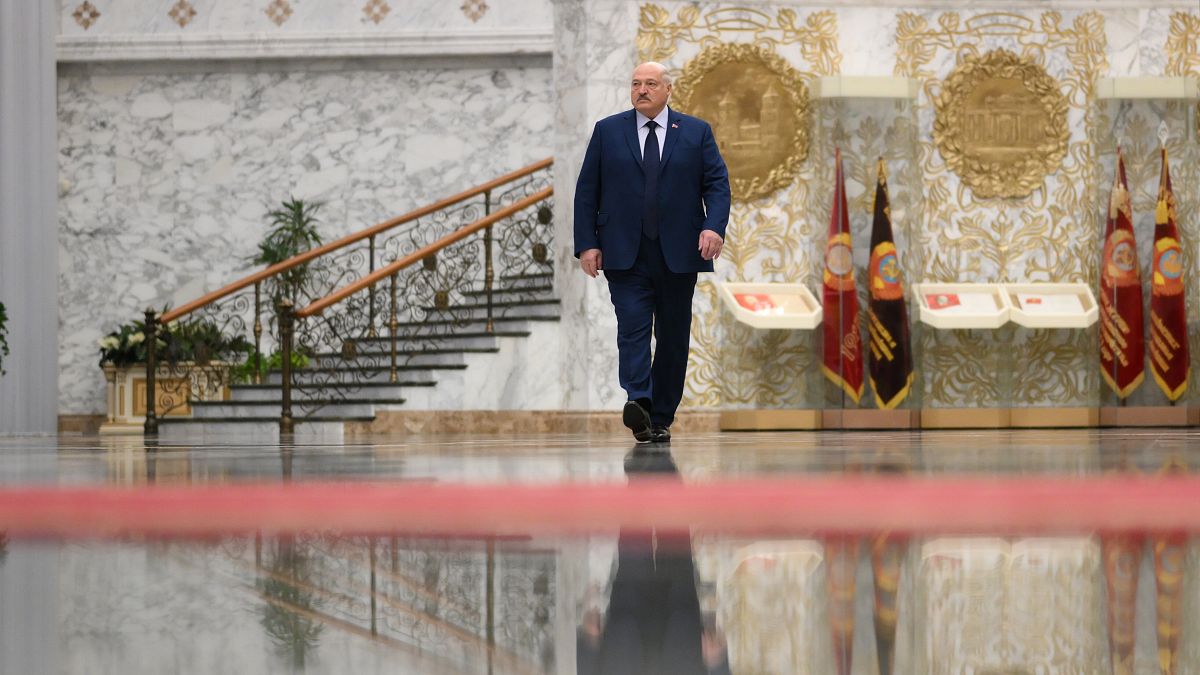Belarusian leader Alexander Lukashenko has recently pardoned 20 individuals described as political prisoners by rights activists. This announcement comes amidst ongoing oppression of political opponents leading up to the upcoming presidential elections, which are expected to further extend Lukashenko’s rule. The pardoned individuals were convicted of “crimes of an extremist nature,” with the group including 11 women and 14 individuals suffering from chronic illnesses. This marks the eighth pardon by Lukashenko since the summer of 2024, with a total of 207 political prisoners having been released.
The mass anti-government protests in 2020, following Lukashenko’s contested sixth term victory, led to the imprisonment of thousands of individuals, with over 1,250 still behind bars according to Belarus’ oldest human rights group, Viasna. However, most prominent opposition figures, including Nobel Peace Prize laureate Ales Bialatski and others, have not been released and remain in detention. The upcoming presidential elections in January 2025 are expected to solidify Lukashenko’s hold on power, as the election commission has only allowed politicians loyal to him to collect signatures to challenge him.
Despite the recent pardons, activists like Pavel Sapelka from Viasna note that repression in Belarus is intensifying as authorities crack down on dissent ahead of the elections. The harsh conditions for political prisoners, which include denial of access to lawyers and medical care, have resulted in the deaths of at least seven individuals behind bars since 2020. Lukashenko’s close ties with Russian President Vladimir Putin have also raised concerns, especially after allowing Russian troops to enter Ukraine in 2022 and deploy tactical nuclear weapons.
The ongoing crackdown on political opponents in Belarus has drawn condemnation from international human rights organizations and western countries. Lukashenko’s strategy of pardoning some prisoners while simultaneously incarcerating more has been seen as a tactic to send mixed signals to western nations. The lack of transparency and due process in the legal system, coupled with reports of human rights abuses, has raised alarms about the state of democracy and freedom in Belarus.
As the political situation in Belarus continues to escalate, with mass protests in 2020 followed by widespread arrests and ongoing repression, the international community is closely monitoring the developments leading up to the January elections. The fate of the remaining political prisoners, including prominent opposition figures, remains uncertain, highlighting the precarious situation faced by those advocating for democratic change in the country. With Lukashenko’s hold on power seemingly unshaken, concerns about the future of human rights and democracy in Belarus persist.











